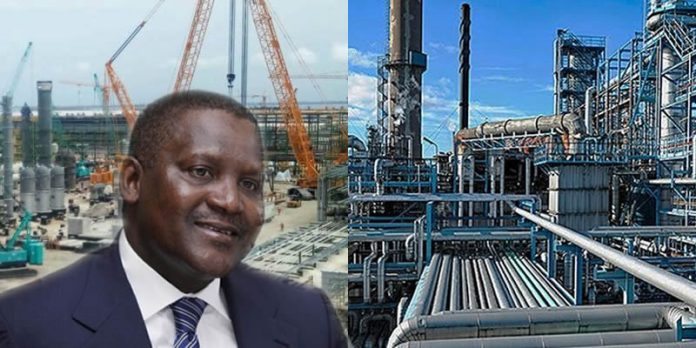Large oil firms have expressed regret about the effect that pipeline damage and oil theft have on the supply of petroleum for nearby refineries. Speaking on behalf of the corporations, Dr. Chinyere Almona, Director-General of the Lagos State Chamber of Commerce and Industry, named pipeline vandalism and crude oil theft as the main obstacles preventing the oil majors from meeting their daily quotas.
Almona added that it was difficult for modular refineries to obtain enough oil. She also mentioned that the Dangote Petroleum Refinery and other modular refineries are unable to get crude from international oil corporations due to Nigeria’s poor crude oil production.
The Nigerian Upstream Petroleum Regulatory Commission’s latest recent data for April 2024 shows that the country produces 1,281,478 barrels of crude oil per day (excluding condensates). In January of this year, the nation produced 1,426,574 barrels per day; however, this was not sustained, as the production fell to the level observed in April.
When completely operational, Nigeria’s 25 modular refineries can process around 200,000 barrels of crude oil per day, compared to the $20 billion Dangote refinery in Lagos, which can refine 650,000 barrels per day.
In order to raise foreign cash, the Federal Government exports crude oil through IOCs and the Nigerian National Petroleum Company Limited. Crude is a global commodity with a US dollar price tag. Oil theft, pipeline vandalism, and other challenges in the upstream oil sector have plagued Nigeria’s crude production for several years.
This has led to low oil production in Nigeria, a development that the Oil Producers Trade Section in Nigeria, a subgroup of the Lagos Chamber of Commerce and Industry, blames for the inability of IOCs to provide adequate crude oil to Dangote Refinery and other local refineries.
In April, the Speaker of the House of Representatives, Abbas Tajudeen, said that Nigeria loses N1.29 trillion annually to oil theft, pipeline vandalism, and other forms of criminality. Tajudeen, who spoke through the Chairman of the House of Representatives Committee on Defense, Babajimi Benson, at the commissioning of the Nigerian Navy Training Command at Eleme, Rivers State, said that Nigeria loses about 300,000 barrels of crude oil per day to theft.
He said the trend was a challenge for the Nigerian Navy to rise to its mandate of contributing to the survival of the national economy.The President of Dangote Group, Aliko Dangote, had raised the alarm that IOCs in Africa preferred to export crude instead of serving countries on the continent.
According to him, the international oil companies were used to exporting crude for foreign exchange, adding that they were not ready to stop. Dangote said that though NNPC was doing its best to supply feedstock to the refinery, the IOCs wanted to sell it outside the country.
“The NNPC is doing its best, but some of the IOCs are struggling to give us crude. Everybody is used to exporting, and nobody wants to stop,” Dangote told CNN recently.
When contacted to get an explanation of the IOCs through the OPTS, the Director-General of the chamber, Almona, explained that the low production of crude in Nigeria was a challenge.
“We realised that due to the low crude production level and other constraints, there might be challenges at the beginning. We can all learn from these teething issues to enrich our regulation of the oil and gas sector for better performance,” she stated.
Almona added that members of the OPTS were also going through their own challenges, such as oil theft, which remained a major factor responsible for low crude oil production in the country over the years.
“The issue of oil theft, pipeline vandalism, and policy concerns, among others, are all contributory factors,” she explained to Sunday PUNCH during a telephone interview.
The LCCI DG also pointed out that issues around pricing and supply contracts between the Dangote refinery and IOCs should be granted a “soft landing” by the government through NNPC and NUPRC.
She said, “The issue of IOCs supplying crude oil to Dangote Refinery is a subject of our ongoing conversations around what information is in the public and our preliminary engagements with some parties.
“Based on public information from Dangote Group, it has been confirmed that some IOCs have been supplying crude to the Dangote refinery. The efforts of the government in ensuring crude supply to Nigerian refineries, including Dangote Refinery, are reasonable.
“However, we call on the NNPC and NUPRC to do more to grant a soft landing to the new refinery if there are any issues around pricing and supply contracts between the two parties.” The chamber called for a conducive business environment because crude was an international commodity with international pricing.













